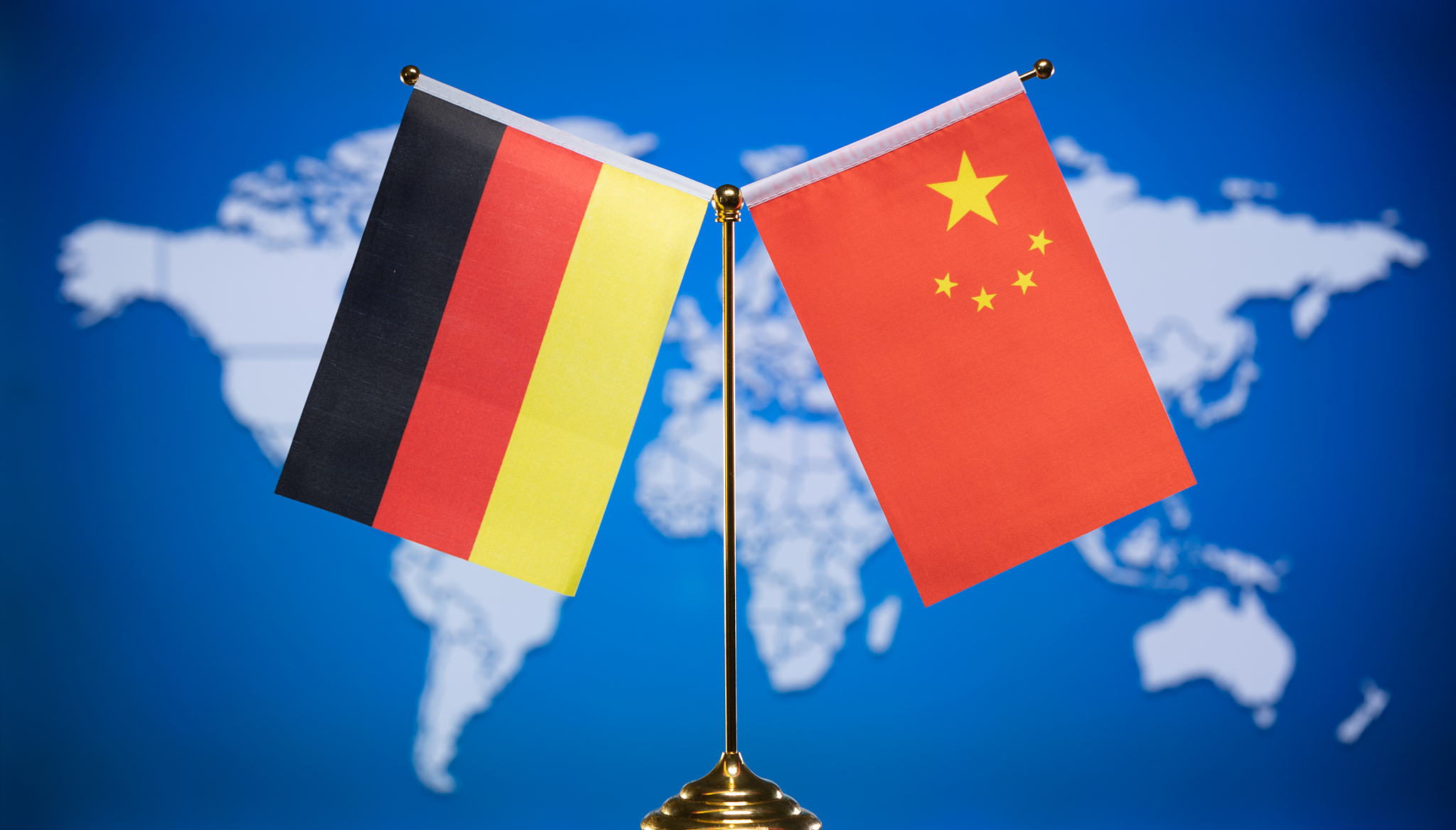
Editor's note: Stephen Ndegwa is a Nairobi-based communication expert, lecturer-scholar at the United States International University-Africa, author and international affairs columnist. The article reflects the author's opinions, and not necessarily the views of CGTN.
In what it termed as a "systems competition with the People's Republic (of China)", Germany recently announced that it plans to double the current funding of the country's academia aimed at studying critical aspects of the Chinese system.
According to recent information published in the online University World News (UWN), Germany's Federal Ministry of Education and Research (BMBF) had initially allocated 12 million euro ($14 million) in funding for the period 2017-24 for a rigorous and independent study of China's expertise at German universities.
In the latest move, this amount will be doubled by an extra $12 million in order to enable German universities to cooperate with other institutions from national up to the continental level with the aim of supporting "eye-level science and research collaboration with China which is oriented on European values."
The UWN article states: "According to Federal Education and Research Minister Anja Karliczek, German actors require knowledge of China's special features. This would include language proficiency as well as areas such as culture, history and the country's legal, political and economic framework."
Now, it is not perchance that Germany is the largest economy in the European Union, which according to 2020 statistics by the World Bank has a Gross Domestic Product (GDP) of $3.8 trillion. The United Kingdom comes second with a GDP of $2.7 trillion. Germany also has a markedly different approach to issues than the archetypal know-it-all Western nations. It is this pragmatism and willingness to learn that has given it an edge on the economic front.
The initiative is a double-edged sword though. On one hand, it is aimed at learning the "secrets" of China's unprecedented socio-economic success, and even enhancing ongoing collaboration between the two partners on economic and climate change matters.
Conversely, the exercise is aimed at moderating China's influence on Germany's body politic, something which Karliczek was quoted saying, "I don't want China to influence our universities and society." The Minister claimed that China's Confucius Institutes, called "Konfuzius-Institute" in German, have enjoyed the liberty to impart Chinese language and culture in the country without commensurate ideological countering on China by German institutions.

Students at the Confucius Institute at the University of Barcelona practice a traditional Chinese dragon dance in Barcelona, Spain, February 15, 2018. /Xinhua
Students at the Confucius Institute at the University of Barcelona practice a traditional Chinese dragon dance in Barcelona, Spain, February 15, 2018. /Xinhua
Well, maybe Germany will want to study the fact that China has risen to global economic powerhouse status next to the U.S. using a political economy system originated by a German, Karl Marx. Although Marxism operates on the fringes of Germany's main politics, it has greatly influenced its governance through the application of socialism thought, particularly through the government's economic intervention.
One critical area that Germany will be interested in is the burst of technological innovation in China over the last couple of decades. The world respects German technology for its quality and design. If China learned the latter from its partner, it has cost-effectively upped its game beyond its mentor.
In 2018, the Communist Party of China formally initiated the journey towards "ecological civilization" by enacting the philosophy in its Constitution. This means that environmental conservation and rehabilitation is fully backed by the law, which gives the process a sense of predictability.
Granted, Germany is also huge on environmental matters through its three-pronged policy entailing polluter-pays, precaution, and co-operation. But this "soft approach" does not deliver the requisite punch that is necessary to stop further environmental degradation at the required pace.
But make no mistake; Germany made a frank admission that it is in a systems competition with China and seeks to compete on an equal basis. This means that it plans to juxtapose the two systems and pick what it finds beneficial. "We seek to engage in this competition at eye level and with the aim of mutual benefits," Karliczek said.
German Chancellor Angela Merkel is reportedly a big supporter of the Belt and Road Initiative (BRI), a fact evident from the fact that the joint China-Germany train service is the most fruitful project under BRI.
The COVID-19 pandemic brought the strategic partners even closer, with Chinese President Xi Jinping and Merkel leading in constant communication among major institutions between the two sides. In mid-2020, a China-Europe freight train ferried more than 300 tons of masks and protective suits from Wuhan, Central China's Hubei Province to Duisburg, Germany.
The latter appreciates that it is China's door to Europe and feels the need to have a deeper understanding of brand China. It is a friendly rivalry, unlike the U.S. whose sole objective is to contain China by all means necessary.
Indeed, mutuality, a philosophy publicized by China as a mantra for international relations, should be the ultimate goal of the Sino-German partnership. The German thrust appears all in good faith, and can only be beneficial to its own governance structures. China is the future and it does help to envision the end game.
(If you want to contribute and have specific expertise, please contact us at opinions@cgtn.com.)

